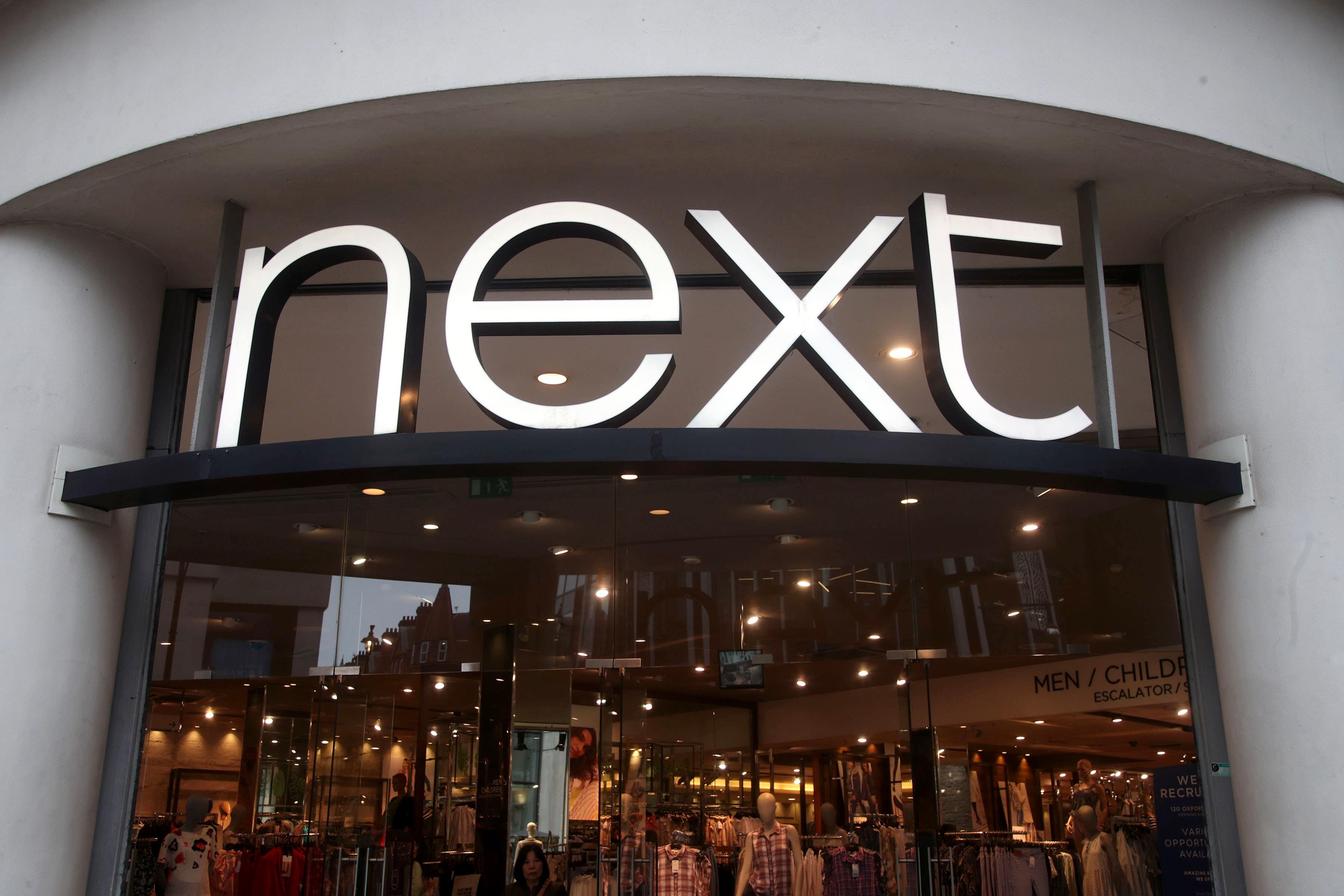Next warns over store closures after losing equal pay case
The retailer is planning to appeal against the decision last month after a six-year legal battle.

Your support helps us to tell the story
From reproductive rights to climate change to Big Tech, The Independent is on the ground when the story is developing. Whether it's investigating the financials of Elon Musk's pro-Trump PAC or producing our latest documentary, 'The A Word', which shines a light on the American women fighting for reproductive rights, we know how important it is to parse out the facts from the messaging.
At such a critical moment in US history, we need reporters on the ground. Your donation allows us to keep sending journalists to speak to both sides of the story.
The Independent is trusted by Americans across the entire political spectrum. And unlike many other quality news outlets, we choose not to lock Americans out of our reporting and analysis with paywalls. We believe quality journalism should be available to everyone, paid for by those who can afford it.
Your support makes all the difference.High street giant Next has warned of possible store closures after losing a landmark legal case over equal pay.
The retailer is planning to appeal against the decision last month that saw more than 3,500 former and current workers at the group win their pay claim after a six-year legal battle.
An employment tribunal ruled that Next failed to demonstrate that the lower basic wage paid to sales consultants compared with warehouse operatives was not the result of sex discrimination.
Next – which is led by chief executive Lord Wolfson – cautioned that while it is confident of winning its appeal, if it did not, it could be forced to shut shops due to soaring costs.
Inevitably some of our stores will no longer be viable if this ruling is upheld on appeal
In its half-year results, the group said: “In the possible (but unlikely) event we lose this case on appeal, there will be a financial cost to the group and its ongoing future operating costs.”
It added: “Each of our stores is treated as a business in its own right, and must remain individually profitable if they are to open in the first place and continue trading at lease renewal.
“Inevitably some of our stores will no longer be viable if this ruling is upheld on appeal.
“Materially increasing store operating costs will result in more shops being closed when their leases expire, and will materially impede our ability to open new stores going forward.”
The firm also said that the case could have an impact on the “viability of our warehouse operation” if it cannot increase pay for workers at the sites.
“If, for many people, warehouse work is less attractive than work in stores… how can a warehouse attract the number of employees it needs?” the group said.
The company said its legal team was “very confident of our grounds for appeal”, but stressed the process may not conclude for at least a year.
Last month’s ruling marked the first equal pay claim of its type against a national retailer to secure a win and is seen opening the gates to more.
Around 60,000 Asda workers are also pursuing a similar claim, which has now reached an employment tribunal after being launched 10 years ago.
Next’s comments come as the group upped its annual profit outlook for the second time in less than two months and said prices of its ranges would fall over autumn and winter.
The chain reported a 7.1% jump in underlying pre-tax profits to £452 million for the six months to July 27 as total group sales lifted 8%.
It said UK sales rose by just 1%, dragged lower by its Next brand ranges, which saw sales fall as much as 7.4% in June because of poor demand for seasonal collections amid the cooler early summer weather.
But overseas sales surged 23% in the first half, and the firm also said UK trading since the half-year was “materially” better than expected as the weather improved over August.
Next reported a 6.9% rise in full price sales over the first six weeks of the second half so far and it now expects sales over the year to rise 4% overall, with UK retail growth of 5% in the third quarter.
The firm upped its full-year profit guidance by £15 million to £995 million, which would mark an 8.4% rise on 2023-24.
The group also offered some cheer for under-pressure consumers as it said prices were being cut further for its autumn and winter ranges, down 0.3% after a 1% fall in the first six months.